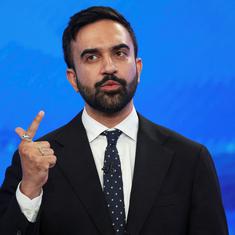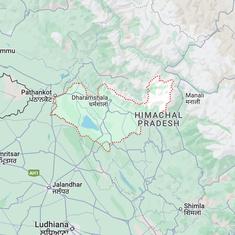The Supreme Court on Monday declared that the UIDAI, which aims to provide all Indians with a unique identification number, was not required to share its databases with law enforcement agencies without the permission of the individuals whose biometric records they wished to access. It also confirmed an interim order made on September 23 that the Aadhaar card could not be made mandatory for those who wish to access government services.
Nandan Nilekani, former chairman of the UIDAI, welcomed the judgment. He wrote on his blog, “This is a good day for the Aadhaar project, and for the 60 crore people who have the Aadhaar number.” Last year, the Bombay high court had ordered the UIDAI to share biometric information with law enforcement authorities investigating a rape case in Goa. The UIDAI under Nilekani refused and appealed against the verdict in the Supreme Court. “Today, the Supreme Court has upheld the UIDAI’s view,” wrote Nilekani. “We have always stated that the data collected from residents would remain private, and not be shared with other agencies.”
The UIDAI was set up by a Planning Commission notification in 2009 and began collecting data for its Aadhaar card in September 2010. Around six million people have signed up for the card so far, which also contains biometric data. Citizens can use these cards to access government services.
Even critics of the programme welcomed the judgement. Reetika Khera, an associate professor in the department of humanities and social sciences at the Indian Institute of Technology in Delhi, described the Supreme Court order as "very welcome" and "much-needed”.
Khera told Scroll.in in an email message that a court ruling in September 2013 that no one should be denied any services for not having Aadhaar was being violated. "For instance, the Delhi government had not revoked its 1 January 2013 order making Aadhaar mandatory for all revenue department services (including registration of marriages)," she said. "In Jharkhand too, pressure was being exerted to get Aadhaar by denying wages to NREGA [National Rural Employment Guarantee Act] workers."
Aadhaar critics like her have long pointed out that central or state governments should not be making the use of Aadhaar compulsory as the unique identity scheme does not have legislative backing: the government failed to pass its proposed law aimed at setting up a National Identification Authority and establishing the framework for issuing Aadhaar numbers.
However, many Aadhaar supporters are dismayed by the Supreme Court's decision not to make the card mandatory for citizens seeking to avail of public welfare schemes. "It is regrettable because the benefits of the Aadhaar scheme is not a clear case of yes or no," said Sastry Tumuluri, an IT officer with the Haryana government. "For social welfare subsidies...there are reasonable benefits to linking it to Aadhaar.”
Tumuluri admitted that while he would not agree that the Aadhaar card should be mandatory to avail of government benefits, those who did have the card were likely to expect better services from the government because they had already gone through a basic system of verification.
“Other forms of ID do not carry as much weight because the due diligence with other forms of ID is far less," he explained. "If you show your number, you get your service eligibility and mapping much faster, and services can be given on accelerated path.”
The scheme has seen several setbacks in the past year. In January, the government was forced to withdraw an order linking Aadhaar cards to LPG subsidies. Then Nandan Nilekani, chairman of the UIDAI, resigned on March 15, three days after joining the Congress. He is now contesting the general election on a ticket from Bangalore South.
Without him, and with a new government likely to take office, the scheme's future is uncertain. “The government has not done much thinking,” said Bhamy Shenoy, a consumer rights activist from Mysore. “They started this and then started thinking about how it would work. I can bet you that this will be dropped once a new government is in. It is not convenient to any politician.”
Representatives of UIDAI declined to comment as the full text of the judgment has not yet been made available.










